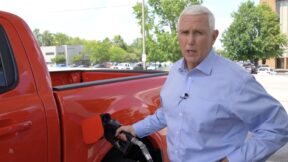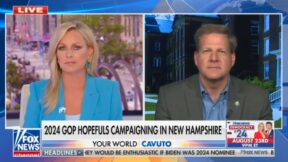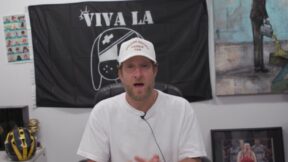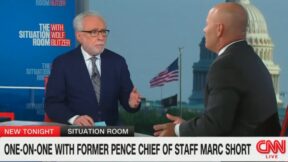Jake Tapper Debunks ‘Yet Another False Claim’ From RFK Jr. — This One About Jake Tapper
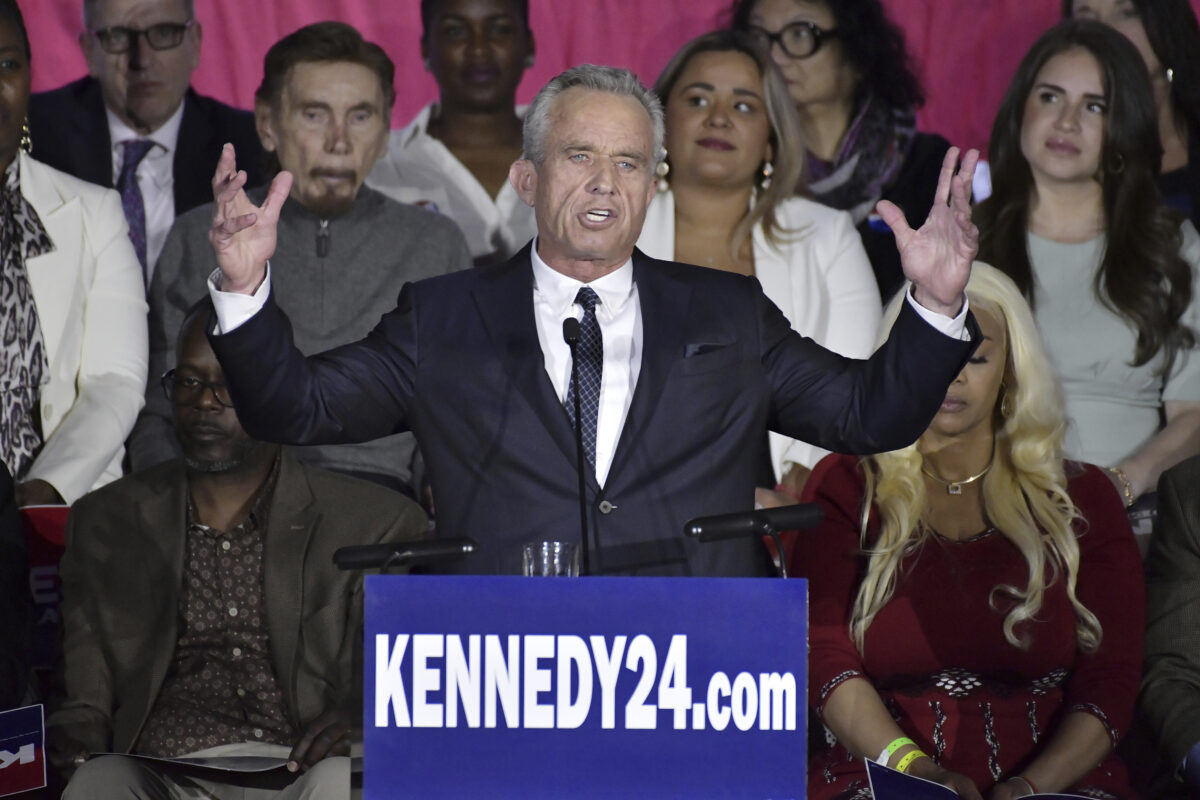
AP Photo/Josh Reynolds, File
Jake Tapper pulled no punches in a detailed evisceration of a “wild and false story” that Robert F. Kennedy Jr. told about the CNN anchor in a recent podcast, blasting the Democratic presidential candidate as someone who “mangles the facts and wildly misrepresents what actually happens” as part of a “reign of error.”
As Tapper described in his article on CNN’s website, Kennedy brought up a story involving Tapper from 2005 while he was on Jordan B. Peterson’s podcast, an anecdote that Tapper framed as “small potatoes” in comparison to Kennedy’s long history of “so many false and wild claims about any number of vital topics – most dangerously about childhood vaccines, per his own siblings.”
Kennedy had mentioned Tapper as part of his claim of “evidence” that news outlets were “trying to censor the truth when it came to vaccines,” wrote Tapper, but the actual reality of the situation was “instructive because of how untethered [Kennedy] is to facts.”
In 2005, Tapper explained, Kennedy wrote an op-ed co-published at Salon and Rolling Stone that contained “spurious since-disproven claims about autism and vaccines.” The story went through “five significant corrections” at Salon before it was taken down by both outlets.
“Among the many, many errors,” wrote Tapper, Kennedy claimed that the link between thimerosal and childhood neurological disorders like autism was “real,” but the study he presented as proving that link had been retracted and then later revealed not “merely a mistake but an outright fraud,” showing that “the entire notion that vaccination and autism are somehow linked has been thoroughly debunked.”
After providing multiple links showing the debunking of that study and pointing out that thimerosal had been removed from all childhood vaccines except some flu shots in 2001, Tapper discussed how he had covered the story in 2005, when he was a reporter at ABC News, interviewing Kennedy via phone with a TV crew in his office for a spot on World News Tonight with Peter Jennings, and then Kennedy totally twisted the facts when he talked about it on Peterson’s podcast:
In Kennedy’s bizarre retelling a few days ago (the relevant part starts at 27:55 into the interview), I worked with him “for three weeks doing this incredible documentary” (no and no) about his Rolling Stone story – please note he makes zero mention of the article having since been retracted and disappeared – and then “the night before the piece was supposed to run, he called me up and said, ‘The piece just got killed by corporate.’” (I didn’t say that in any way and the piece wasn’t killed.) “All my career, I have never had a piece killed by corporate and I’m so mad,” he said I said. (I hadn’t. I had been at ABC News for two years. I had had plenty of pieces killed. Not once did “corporate” play a role in killing any of them.)
RFK Jr. has been misrepresenting the content of this call for years. (I told him we were holding the story for a day.) Now in his retelling, a two-minute piece was an “incredible documentary,” a few days of work was three weeks, one remote interview was me working intensely with him, and a piece that got delayed one day so we could interview some actual experts is a piece that got killed.
At the time, Tapper went in-depth into the debunking of Kennedy’s unfounded claims, reporting, “The medical community overwhelmingly disagrees with Kennedy, who is not a scientist or a doctor. They point out that autism rates are not decreasing, even though Thimerosal has been removed from most childhood vaccines as a precaution.”
“So, yeah, we did the fact-checking for our piece that RFK Jr. didn’t do himself,” Tapper concluded in his CNN article. “And he remains someone you cannot rely upon for facts, truth or accuracy.”
Tapper was not the only journalist publishing an RFK Jr. debunking on Thursday. Joan Walsh, who in 2005 was the Salon editor in chief who published his “mendacious, error-ridden piece,” offered a brutal mea culpa about her role in approving the article.
“From the day [Kennedy’s article] went up on Salon.com,” wrote Walsh, “we were besieged by scientists and advocates showing how Kennedy had misunderstood, incorrectly cited, and perhaps even falsified data. Some of his sources turned out to be known crackpots.”
She had been Salon’s editor in chief for only four months, Walsh continued, calling this “the worst mistake of my career,” and admitting she “probably should have been fired.” She described their process of “dutifully (and increasingly anxiously and ashamedly) publish[ing] correction after correction.”
“At the time, I thought that was the responsible thing to do—leave the piece up, but assiduously correct it, in the name of transparency,” she wrote. “But as subsequent articles and books continued to debunk Kennedy’s conspiracy theory, it felt irresponsible to leave it up.”
Kennedy was accusing Salon of having “caved to pressure from government regulators and the pharmaceutical industry,” but that was “just another lie,” Walsh emphasized. “We caved to pressure from the incontrovertible truth and our journalistic consciences.”
Have a tip we should know? tips@mediaite.com

